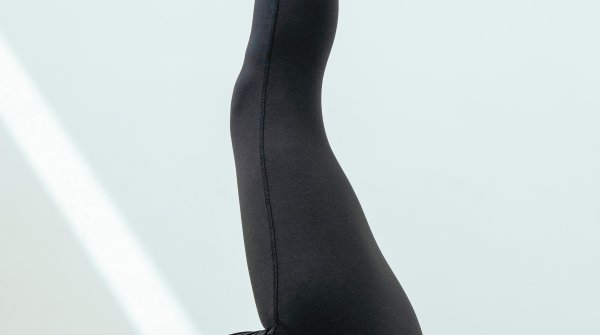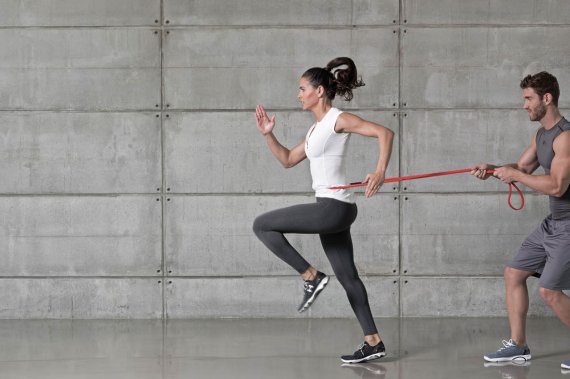
Resistance bands can put even the toughest athletes through their paces. Elastic fitness bands bring an intensive appeal to training can be used even in a hotel or at the office. A sports scientist explains to ISPO.com how to train well using resistance bands.
Resistance bands have grown from a fitness trend into an established piece of fitness equipment. The fitness bands originally came from the USA – and gained popularity in Germany through Mark Verstegen, FC Bayern’s fitness trainer under Jürgen Klinsmann from 2008 to 2009. Resistance bands are now being used in action sports too: Freerider Bene Mayr used the bands whenever he is preparing for any competition.
The bands already found favor among sports scientists – the national German football team uses the bands for fitness and coordination training. But everyday, free-time athletes can also use the bands for daily training. The advantage of training with the handy bands is that exercises can be done even in your bedroom or office.
Successful Training with Resistance Bands
Uno Gomes is the founder of the startup Let’s Bands, which specializes in manufacturing resistance bands. The company has worked with the sports scientist Nina Romm and the trainer Niko Schmitz on around 300 different exercises which you can do with the fitness bands. “We don’t just sell a product, but a concept,” says Gomes.
What is important, says Gomes, is that users train with instructions at the beginning, so that they learn how to do the exercises exactly right. Many athletes have the bands but don’t know how to use them correctly.
Two Kilograms of Muscle Mass in Six Weeks
Personal trainer Ralf Mackrodt uses many of these exercises with his clients on a daily basis. Mackrokt is the founder of the company senseble, which offers health advice to companies: “Many are quite skeptical beforehand. So afterwards there is a proper shock,” says the personal health coach.
For example, he had a client who managed to gain two kilograms of muscles mass in six weeks, just using the strength bands. “Of course, this man hadn’t done sport before the six weeks, but we can still see noticeable effects even for sport enthusiasts,” Mackrodt says. For the training, his clients invested 10 to 15 minutes of time every other day.
The sports scientist explains some rules users must keep to when training:
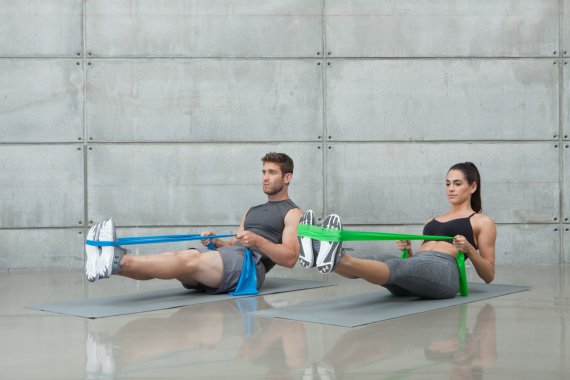
Resistance bands for a Core Stability
In general, the sports scientist points to a few rules for doing exercises with strength bands:
- Always keep your body’s core stable – to do this, keep your stomach and buttocks tense and draw in your navel
- When doing exercises standing up, keep your knees slightly bent
- Too much strain puts you at risk of hollow back – this should be avoided at all costs, so if in doubt, use a band with less tension
- Increases in tension (that is, using stronger bands), should be done gradually, step-by-step – tendons and ligaments must get used to the training
Ideally, training should be with a short and a long band. Central components to training sessions with resistance bands are different squats, press-ups, “rowing,” exercises for the shoulder muscles and the lower limbs.
Resistance Band Training Means Core Training
As a sports scientist, Mackrodt knows the advantages of band training:
- They strengthen the core muscles, important small muscles groups which ensure stability particularly in the torso – and which are neglected by many training methods
- The possibilities of using the bands for both concentric and eccentric exercises mean that training is more effective
- Very intensive training stimuli are possible
- Training with bands can be done just as easily in a hotel room as a high-end fitness studio
- Tension can be increased by using stronger bands
- Training is possible in rehab just a short time after injuries or with artificial limbs
- Chest muscles are stretched and mobilized – ideal for those who spend a lot of time sitting at their computer
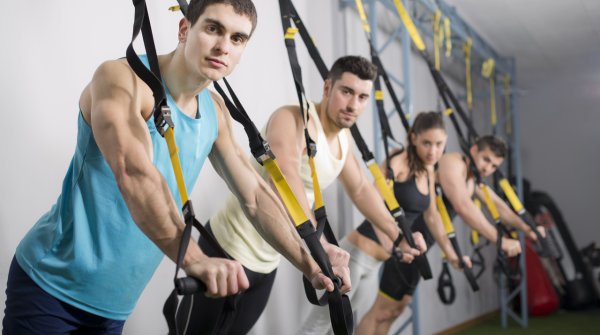 Know-HowThe 11 Best TRX Exercises
Know-HowThe 11 Best TRX Exercises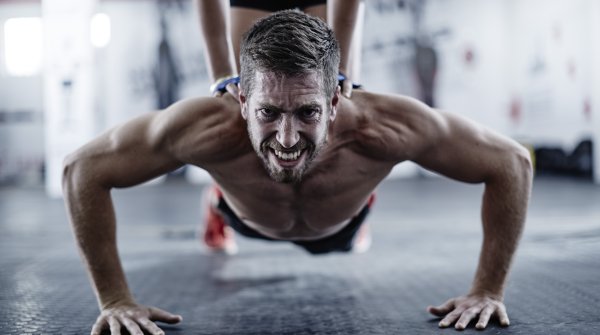
- ISPO awards
- Mountain sports
- Bike
- Design
- Retail
- Fitness
- Health
- ISPO Job Market
- ISPO Munich
- ISPO Shanghai
- Running
- Brands
- Sustainability
- Olympia
- OutDoor
- Promotion
- Sports Business
- ISPO Textrends
- Triathlon
- Water sports
- Winter sports
- eSports
- SportsTech
- OutDoor by ISPO
- Heroes
- Transformation
- Sport Fashion
- Urban Culture
- Challenges of a CEO
- Trade fairs
- Sports
- Find the Balance
- Product reviews
- Newsletter Exclusive Area
- Magazine



